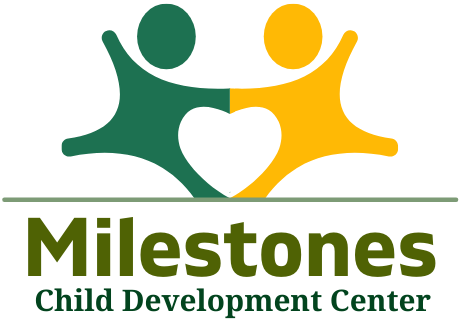DMI Therapy in Gurugram
Dynamic Movement Intervention (DMI) is a specialized, evidence-informed physiotherapy technique designed for children with motor delays and neuromotor impairments. It involves structured exercises that stimulate the brain and musculoskeletal system, encouraging purposeful, functional movements. The therapy is hands-on, dynamic, and customized based on a child’s specific needs and developmental goals.
At Milestones Child Development Center, we understand that early development forms the bedrock of lifelong well-being. When developmental delays arise, timely and specialized intervention like DMI Therapy can change the entire course of a child’s growth.
Dr. Purva Pande, Founder of Milestone Child Development Center in Gurugram, shares:

How DMI Therapy Helps Children with Developmental Challenges
Dynamic Movement Intervention in Gurugram is gaining recognition for its measurable impact on children with:
- Cerebral palsy
- Global developmental delay
- Down syndrome
- Hypotonia (low muscle tone)
- Prematurity-related motor delays
- Genetic or chromosomal disorders affecting movement
- Autism with motor coordination challenges
Children undergoing DMI therapy experience enhanced motor planning, trunk control, and the ability to transition between positions. These improvements contribute to better posture, improved balance, and greater independence. Importantly, the therapy also builds the confidence of both children and their families.
Recent international research indicates that early motor interventions like DMI can accelerate the achievement of motor milestones. In India, where early diagnosis can sometimes be delayed, integrating such structured therapies can have a transformative impact on a child’s functional trajectory.
Signs Your Child May Benefit from DMI Therapy in Gurugram
While every child grows at their own pace, some delays could be a sign that intervention is needed. Consider speaking to a physiotherapist in Gurgaon if you notice any of these signs:
- Delayed head control beyond 4 months
- Difficulty in rolling, sitting, crawling, or walking
- Poor balance or coordination
- Stiff or floppy muscle tone
- Lack of interest in moving or exploring
- Asymmetrical movement patterns
- A previous diagnosis affecting motor skills
Our professionals use screening tools and developmental checklists to assess whether DMI Therapy is the right fit. The earlier the intervention, the greater the outcome for mobility and independence.

Wondering whether your child is progressing at their developmental milestones? A professional assessment will direct you to know and create a customized plan to improve.
Our DMI Therapy Process in Gurugram
Milestones Child Development Center is a trusted hub for Dynamic Movement Intervention in Gurugram. The therapy process here is both evidence-based and deeply child-centric. Here’s what it typically includes:
Comprehensive Evaluation: Every child undergoes a detailed developmental and physical assessment, focusing on gross motor skills, posture, and mobility.
Individualized Planning: Based on the assessment, a therapy roadmap is created that’s flexible and constantly evolving with the child’s progress.
Hands-On Therapy Sessions: Using DMI’s graded exercises and specialized techniques, physiotherapists guide the child through movement sequences tailored to their ability level.
Progress Monitoring: Continuous observation, video feedback, and parent updates ensure consistent alignment with therapy goals.
As one of the most experienced Child Development Centers in Gurugram, Milestones places equal emphasis on involving parents, offering home-care routines, and tracking long-term gains.

What to Expect During DMI Therapy Sessions With Us
Each session of DMI therapy for children lasts about 45 to 60 minutes and involves repetitive, targeted movement patterns. The physiotherapist may use tools like incline benches, boxes, or wedges to challenge the child’s motor abilities. The activities are not only functional but also engaging—children often treat them like play.
Key elements of a DMI session include:
- Manual facilitation from the therapist
- Age-appropriate challenges to provoke postural responses
- Functional tasks like transitions from lying to sitting
- Use of sensory input to encourage better movement patterns
- Positive reinforcement and emotional encouragement
Dr. Purva Pande, an acclaimed pediatric physiotherapist in Gurugram, adds:
“Our sessions are adapted for infants, toddlers, and older children depending on developmental age and needs. We often encourage parents to observe and, when comfortable, replicate simplified exercises at home under guidance.”
Curious about how movement-based therapy could help your children thrive? Exploring your options with an expert can uncover effective, child-friendly strategies.
Why Choose Us for DMI Therapy in Gurugram?
Qualified Experts: A team of highly trained pediatric physiotherapists with extensive DMI certification.
Child-Friendly Environment: A welcoming, play-based setup that makes therapy less clinical and more motivating.
Parental Involvement: Open communication channels with caregivers and involvement in therapy planning.
Integrated Approach: Collaboration with speech therapists, occupational therapists, and developmental pediatricians.
Evidence-Based Protocols: Global best practices tailored to suit local needs and developmental norms.
Frequently Asked Questions:
What is the ideal age for starting DMI Therapy?
How frequently should my child attend DMI sessions?
Is DMI Therapy painful or uncomfortable?
Can I do DMI exercises at home?
Will my child need other therapies alongside DMI?
Disclaimer: The information shared in this content is for educational purposes only and not for promotional use.
